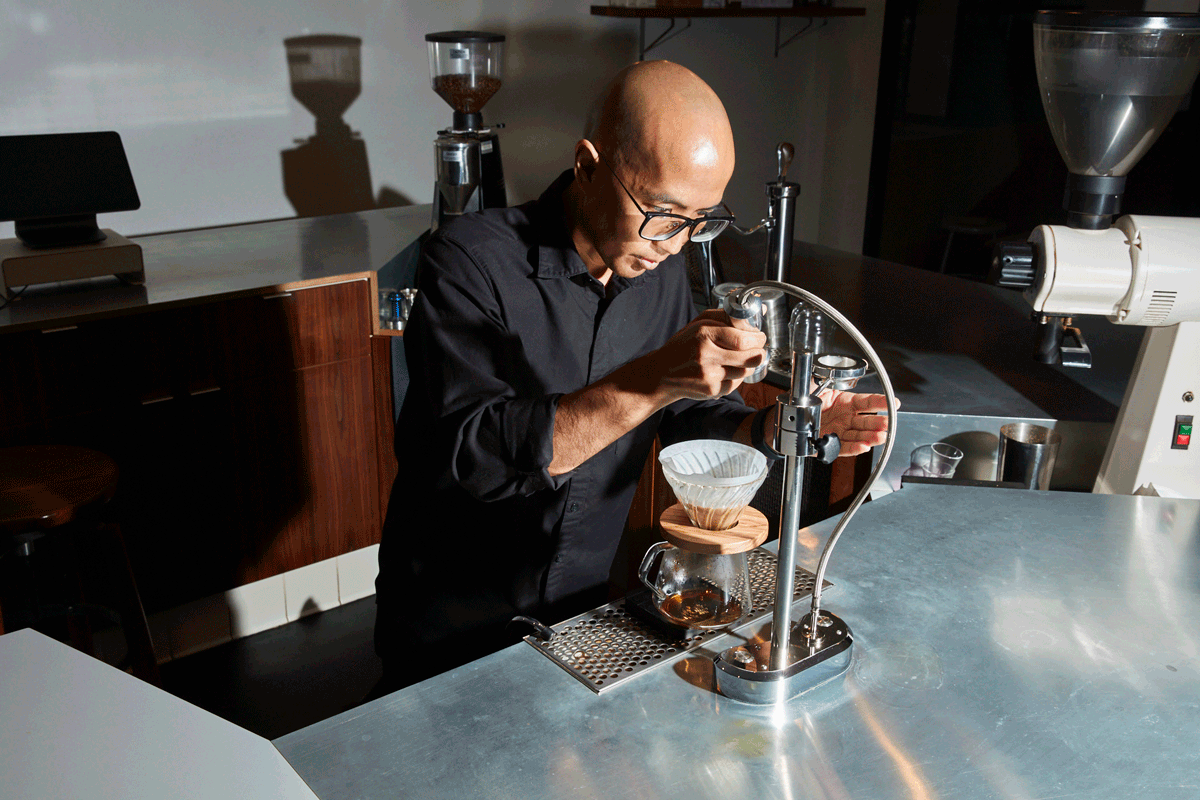The Nine-Seat Lesson
A visit to the smallest bar in Los Angeles — and what it taught me about craft, presence, and the kind of café I hope to build.
We talk a lot about “craft” in coffee.
But it’s rare to see it in its purest form — when every movement, every decision, every second is in service of the cup in front of you.
But last year, I tasted it. And now I know what a café can be.
On a coffee tour through Los Angeles, I step into a bar with only nine seats.
Behind it stands one man: Jack Benchakul, founder of Endorffeine.
If Jack isn’t there, the bar doesn’t open. But when he is, every movement is measured, deliberate, and carried out with zen-like focus. Jack was a biochemist before coffee, and you can taste it in his precision.
No music, no rush. My espresso arrived with no fanfare, just quiet confidence.
One sip and I understand: this is coffee that could only have been made by this person, in this place, at this moment.
I quickly decide I need to try everything on the menu. We get to talking, and I learn he makes his own water. Actually four different waters: one for pour-overs; one for cold brew; one for espresso, and finally one for the water he serves alongside the coffee.
I’ve carried that cup with me ever since—not just in taste, but in lesson.
Jack shows us that there is a way to make a business out of a personal craft.
Most cafés are built for throughput, and I can already see how every model risks inconsistency. We can source extraordinary green coffee, roast it with care, and hand it to a skilled barista — but unless every link in that chain is protected, the final cup can fall short. The gap isn’t just between idea and execution; it’s between what the product could be and what the market is set up to deliver.
That’s what makes the Endorffeine model so compelling. The craft is inseparable from the maker. You’re not paying for coffee alone; you’re paying for the maker’s presence, his discipline, and his years of accumulated skill.
As I prepared to open my first café, one question lingered: could this level of “high craft” ever translate into a team? Or can it really only live in a place like Endorffeine, where the standard is embodied by a single person?
I’m curious what you think. Here are the theories I’m working through:
Build an apprenticeship model closer to fine dining than food service.
Narrow the menu and footprint so attention stays sharp.
Create a skill-based path for baristas, with pay and responsibility rising with mastery.
Foster a culture that says “no” to serving coffee that doesn’t meet the standard.
These ideas are untested. They might fail. But if coffee is ever to sit alongside the world’s most respected crafts, we have to build systems that give it that possibility.
Because in the end, if we truly respect the craft, the final cup has to be worth the reach.



